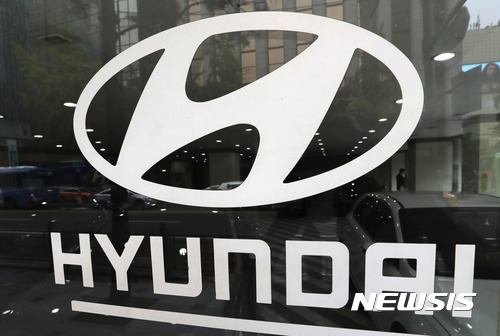
Hyundai Motor Group to invest W3.6 trillion in US over 5 years
 Hyundai Motor Group said it will invest a total of 3.6 trillion won ($3.1 billion) in the United States over the next five years, following a series of other global carmakers’ announcements of their future investment plans in the country amid a prevailing fear of President-elect Donald Trump’s threats of higher taxes on auto imports from Mexico.
Hyundai Motor Group said it will invest a total of 3.6 trillion won ($3.1 billion) in the United States over the next five years, following a series of other global carmakers’ announcements of their future investment plans in the country amid a prevailing fear of President-elect Donald Trump’s threats of higher taxes on auto imports from Mexico.
According to New York-based media company Bloomberg, Tuesday, Hyundai Motor President Chung Jin-haeng told reporters that Korea’s largest carmaker is reviewing its plan to build a new factory in the U.S. and may produce Hyundai Motor’s luxury division Genesis models and sports utility vehicles (SUVs) there.
“We expect a boost in the U.S. economy and increased demand for various models as President-elect Trump follows through on his promise to create one million jobs in five years,” Chung was quoted as saying. “We will actively consider introducing new models that are in demand and generate higher profits.”
Hyundai Motor Group has invested a total of $2.1 billion in the country over the last five years.
The group said it will invest about 30 to 40 percent of the $3.1 billion on new technologies such as autonomous driving and green cars while the remaining will be spent on building facilities and adding new models.
The plan also includes expanding its existing plant in Alabama, which produces the carmaker’s popular Sonata and Elantra sedans and the Santa Fe SUV, but Chung also said it was “possible to build additional production plants if there was more demand in the U.S.”
He added that Hyundai is not likely to make additional investments in Mexico, and won’t outsource American production to other countries.
The group’s move is believed to be a response to President-elect Trump’s protectionism, but Chung denied it.
“The U.S. market is strategically a very important market for us and success or failure there is a barometer of our success globally,” Chung said. “Our interest in the U.S. market is consistent regardless of the government of the day.” (Jhoo Dong-chan, The Korea Times)



